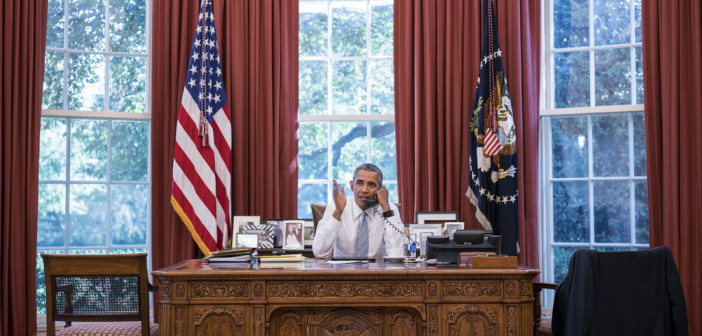After seven years of acrimonious court battles, profligate spending and hardball political lobbying, the Keystone XL pipeline is dead. U.S. President Barack Obama rejected the proposal, as most suspected he would.
“Several years ago, the State Department began a review process for the proposed construction of a pipeline that would carry Canadian crude oil through our heartland to ports in the Gulf of Mexico and out into the world market,” said Obama in a press conference on Friday.
“This morning, Secretary Kerry informed me that after extensive public outreach and consultation with other cabinet agencies, the State Department has decided that the Keystone XL pipeline would not serve the national interests of the United States. I agree with that decision.”
Environmental organizations cheered the decision, which was viewed as an important and meaningful decision ahead of the Paris climate talks.
“The Keystone rejection sets a new and important precedent in the run up to the Paris climate talks that we hope Prime Minister Trudeau will take to heart, project approvals must take climate impacts into consideration so that we are building the future instead of stuck in the past. Why? Because its 2015,” said prominent Canadian environmentalist Tzeporah Berman.
The collapse of Keystone XL represents a spectacular failure for Canada’s former Prime Minister Stephen Harper, who lobbied hard for the pipeline in recent years. In an interview with Bloomberg Television, he had openly criticized the Obama administration, commenting: “I think there’s very peculiar politics of this particular administration.”
The effort included a multi-million campaign to target legislators, academics and others with Keystone XL advocacy, as well as a $24 million, taxpayer-funded ad campaign to get Americans on board with the project.
“President Obama would never spend $24 million of taxpayer’s money up in Canada to get a project approved – and that’s what Harper has done,” Kleeb said.
“There’s this tremendous distrust… where is the line between oil companies, the oil industry and the government up in Canada? That line has been too blurred from our perspective.”
Harper wasn’t the only one spending money to make sure the pipeline went through. The billionaire Koch brothers shelled out $53 million to think tanks and other groups supporting Keystone XL, according to a May 2015 report from the International Forum on Globalization (IFG), a “North-South” research institute that studies the impacts of global commerce.
The IFG says that the money bought the brothers nearly 1,000 pro-Keystone XL reports or statements issued from think tanks and support groups.
The Kochs also have spent $76-million on Congressional candidates who support the tar sands and the pipeline, and outspent all other oil companies to block U.S. climate action through lobbying, the report details.
This outlay of capital to influence policy should perhaps not be surprising, as the Kochs are the largest foreign lease-holders in the tar sands. In a recently-released map of tar-sands holdings, the IFG contends the brothers own close to two million acres of Alberta’s tar sands — equivalent to over 8000 square km, an area larger than the state of Delaware.
The IFG notes that in the Canadian tar sands the Kochs have “almost as many carbon assets at stake [as]Exxon, Chevron, and Conoco’s combined.”
Yet despite the massive spending and aggressive lobbying, Keystone XL is finished.
A historic victory for North America’s climate movement
“It’s historic,” said Adam Scott, the climate and energy program manager for the Toronto-based group, Environmental Defense.




